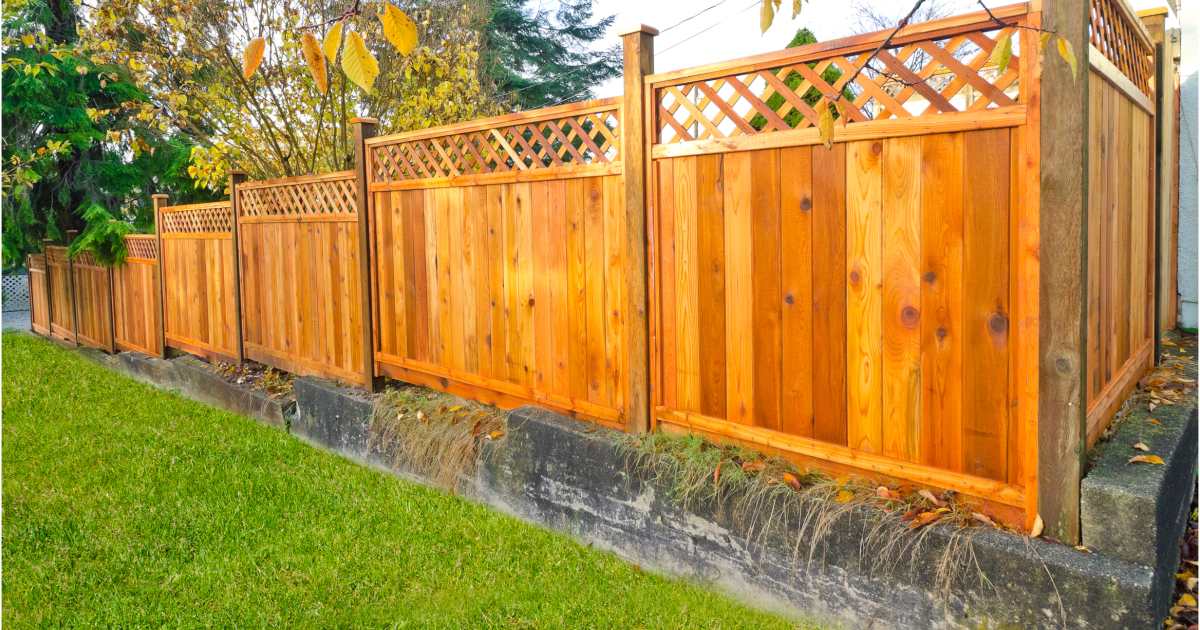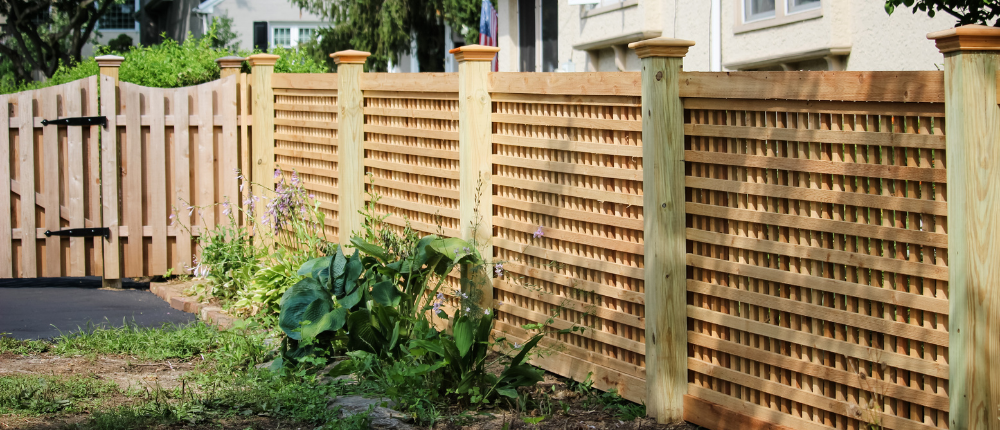All Categories
Featured
When considering fencing for your residential property, durability is a leading priority. Wrought iron is typically chosen for its remarkable sturdiness, but exactly how does it compare to various other typical fence products, such as plastic, timber, and aluminum?
Wrought Iron: The Trustworthy and strong Choice. One of the major benefits of wrought iron is its resistance to harm from pests, rot, or weathering, which are typical issues with wood fences. Unlike timber, functioned iron will not warp, crack, or decay over time, making it an excellent choice for home owners that want a resilient, low-maintenance fencing.
![]()
While functioned iron does need some regular upkeep to prevent corrosion, it is generally easy to take care of and can last for decades if maintained correctly. A properly maintained functioned iron fencing can last 50 years or longer, providing long lasting worth and security for your property.
Wood Secure Fencing: A Classic but High-Maintenance Option. Wood is vulnerable to numerous problems that affect its longevity, including deteriorating, bending, and termite damage. While a timber fence can last anywhere from 10 to 30 years depending on the kind of wood and upkeep, it calls for regular upkeep, including sealing, staining, or painting to shield it from the components.
Timber fences are likewise more at risk to physical damage, such as splintering or cracking under stress. If you're searching for a fencing that is low-maintenance and can withstand severe weather condition and damage, wrought iron is a much more resilient option to timber.
Plastic Fencing: Reduced Upkeep but Much Less Stamina. Vinyl fence is known for being resistant and low-maintenance to rot, fading, and staining. It is a prominent option to wood since it does not call for normal painting or staining. Nevertheless, while plastic is immune to numerous aspects, it is not as solid as wrought iron. Vinyl can fracture or become weak in extremely cold temperatures and may not have the ability to hold up against the impact of an accident or heavy winds in addition to wrought iron.
Plastic fencing normally lasts between 20 and thirty years, and although it does not call for as much maintenance as wood, it does not have the same resilient strength that wrought iron deals. If toughness under extreme problems is your top priority, wrought iron is the much more trusted alternative.
![]()
Light Weight Aluminum Fence: A Lightweight and Resilient Alternate. Aluminum fencing is a lighter alternative to functioned iron, using comparable advantages in terms of reduced upkeep and resistance to rust. Light weight aluminum will not corrosion, rot, or warp, and it can last 20 to thirty years or more with minimal treatment. Nevertheless, light weight aluminum is not as solid as functioned iron and can be a lot more quickly damaged by impacts, making it less ideal for high-traffic or high-security areas.
While aluminum is a lot more budget friendly and easier to install than wrought iron, it does not provide the exact same degree of durability or impact resistance. For those that want a strong, resilient fence that offers security and sturdiness, functioned iron remains the exceptional choice.
Final Thought: Wrought Iron for Ultimate Sturdiness. In the fight for sturdiness, wrought iron continually outperforms various other products like light weight aluminum, wood, and vinyl. Its capability to hold up against physical damage, extreme weather, and the examination of time makes it one of one of the most trustworthy fence options readily available. While timber needs substantial upkeep, vinyl and light weight aluminum are not as solid as wrought iron and may not provide the very same long-lasting toughness.
For property owners looking for a fence that combines strength, protection, and timeless charm, wrought iron is an outstanding financial investment. With proper treatment, a functioned iron fencing can last a lifetime, including worth and safety and security to your home while boosting its total aesthetic charm.
Wrought Iron: The Trustworthy and strong Choice. One of the major benefits of wrought iron is its resistance to harm from pests, rot, or weathering, which are typical issues with wood fences. Unlike timber, functioned iron will not warp, crack, or decay over time, making it an excellent choice for home owners that want a resilient, low-maintenance fencing.

While functioned iron does need some regular upkeep to prevent corrosion, it is generally easy to take care of and can last for decades if maintained correctly. A properly maintained functioned iron fencing can last 50 years or longer, providing long lasting worth and security for your property.
Wood Secure Fencing: A Classic but High-Maintenance Option. Wood is vulnerable to numerous problems that affect its longevity, including deteriorating, bending, and termite damage. While a timber fence can last anywhere from 10 to 30 years depending on the kind of wood and upkeep, it calls for regular upkeep, including sealing, staining, or painting to shield it from the components.
Timber fences are likewise more at risk to physical damage, such as splintering or cracking under stress. If you're searching for a fencing that is low-maintenance and can withstand severe weather condition and damage, wrought iron is a much more resilient option to timber.
Plastic Fencing: Reduced Upkeep but Much Less Stamina. Vinyl fence is known for being resistant and low-maintenance to rot, fading, and staining. It is a prominent option to wood since it does not call for normal painting or staining. Nevertheless, while plastic is immune to numerous aspects, it is not as solid as wrought iron. Vinyl can fracture or become weak in extremely cold temperatures and may not have the ability to hold up against the impact of an accident or heavy winds in addition to wrought iron.
Plastic fencing normally lasts between 20 and thirty years, and although it does not call for as much maintenance as wood, it does not have the same resilient strength that wrought iron deals. If toughness under extreme problems is your top priority, wrought iron is the much more trusted alternative.

Light Weight Aluminum Fence: A Lightweight and Resilient Alternate. Aluminum fencing is a lighter alternative to functioned iron, using comparable advantages in terms of reduced upkeep and resistance to rust. Light weight aluminum will not corrosion, rot, or warp, and it can last 20 to thirty years or more with minimal treatment. Nevertheless, light weight aluminum is not as solid as functioned iron and can be a lot more quickly damaged by impacts, making it less ideal for high-traffic or high-security areas.
While aluminum is a lot more budget friendly and easier to install than wrought iron, it does not provide the exact same degree of durability or impact resistance. For those that want a strong, resilient fence that offers security and sturdiness, functioned iron remains the exceptional choice.
Final Thought: Wrought Iron for Ultimate Sturdiness. In the fight for sturdiness, wrought iron continually outperforms various other products like light weight aluminum, wood, and vinyl. Its capability to hold up against physical damage, extreme weather, and the examination of time makes it one of one of the most trustworthy fence options readily available. While timber needs substantial upkeep, vinyl and light weight aluminum are not as solid as wrought iron and may not provide the very same long-lasting toughness.
For property owners looking for a fence that combines strength, protection, and timeless charm, wrought iron is an outstanding financial investment. With proper treatment, a functioned iron fencing can last a lifetime, including worth and safety and security to your home while boosting its total aesthetic charm.
Latest Posts
Change Your Home with Durable Hardwood Flooring from Carpet Interiors Floor & Home
Published Apr 19, 25
1 min read
Montclare Auto Repair: Your Reliable Expert for Expert Brake & Engine Fixes
Published Apr 19, 25
2 min read
Secure Your Future with WyHy's Special Certificate Options
Published Apr 18, 25
1 min read
More
Latest Posts
Change Your Home with Durable Hardwood Flooring from Carpet Interiors Floor & Home
Published Apr 19, 25
1 min read
Montclare Auto Repair: Your Reliable Expert for Expert Brake & Engine Fixes
Published Apr 19, 25
2 min read
Secure Your Future with WyHy's Special Certificate Options
Published Apr 18, 25
1 min read